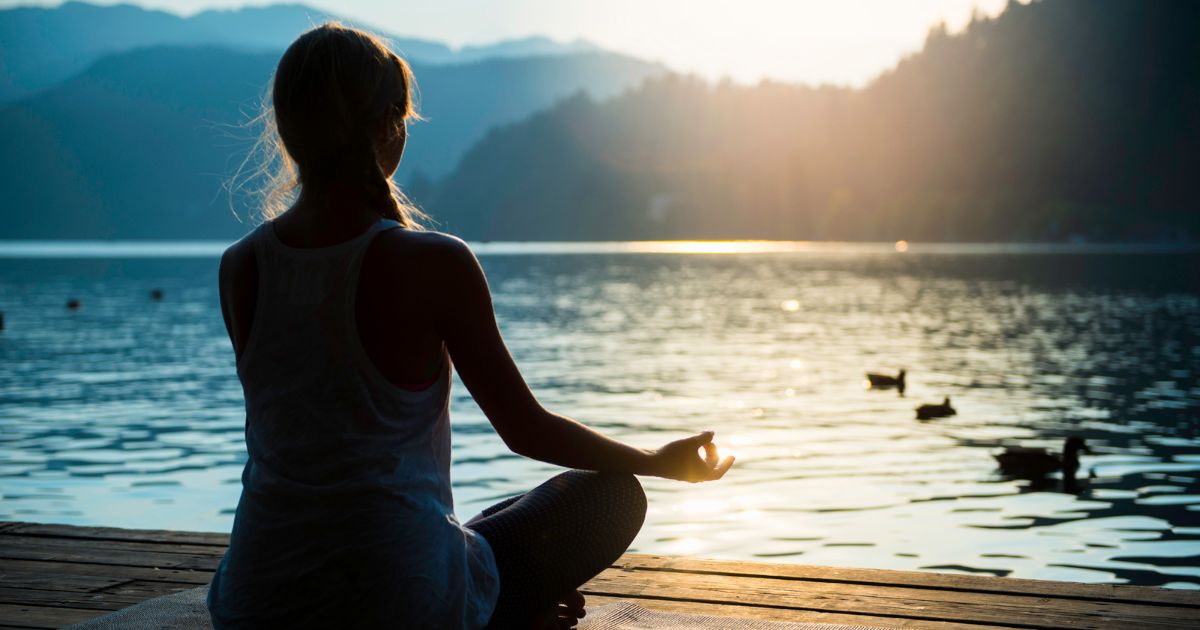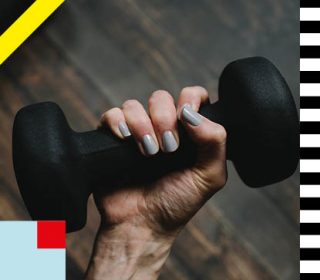How to press reset on your mindset

Did you know that Sunday 21st of May is World Meditation Day?
Dating back to 500 BC, meditation is one of the oldest well-being techniques in the world and offers many benefits. Proven to help with stress, anxiety and depression, psychologists say it can also help you bring a fresh perspective on difficult situations, improve patience and tolerance, and increase your imagination and creativity.
There is still a huge misunderstanding of meditation – who can do it, and what it entails. But anybody, anywhere, can practice meditation, controlled breathing and management of thoughts to improve their overall well-being.
You don’t need to be able to bend yourself out of shape like a pretzel to meditate and press reset on your mindset! For World Meditation Day we’ve teamed up with emotional health coach, wellbeing and self-care expert Vanessa Louise Moore to highlight the benefits of meditation – a wellness act suitable for everyone, everywhere.
What actually is meditation?
To meditate is to become familiar with the essence of you. The true nature and power that makes you, you, – and the beauty of your own heart, so to live the life you were born to live. Typically, though, we are caught up with the chaotic racket in our heads that keeps us distracted, disconnected and busy pursuing a made-up ideal, rather than choosing to purposefully pause and connect to the peace of our hearts.
Meditation creates the space for you to become still, allowing your racing thoughts to calm and your guarded heart a chance to open, an experience which is not all that familiar to many. It’s an effective way to bring you home to your powerfully intuitive and loving self. Can you imagine our world if more of us practised meditation?
Why is meditation a good mindfulness tool?
Meditation allows your mind, body and heart to connect through alignment, resulting in relief and tranquillity. Very different from the feelings of stress, tiredness and frustration we are used to feeling – trying to keep up with the fast-paced life we’ve become accustomed to. We have become impulsive and react to the pressures and demands of life and others where we experience inflammatory behaviours resulting in competition and separation. By uniting with yourself through meditation, we create a more harmonious existence for ourselves first, others and the world around us.
What are the benefits of it and how can it help us physically and mentally?
We are designed for peace and joy so using meditation as a daily tool releases hormones naturally into our system and helps relieve the stresses and pain we feel in our lives and our bodies. Becoming still for a few minutes throughout the day, if you are a novice, or 20-30 minutes if you are more experienced, will release serotonin helping boost your mood and endorphins acting as your natural pain reliever.
All meditation, when fully present with the exercise, will calm your mind and relax your body allowing your parasympathetic nervous system to take over to conserve energy, regulate your bodily functions and bring you back into a state of homeostasis, the body’s optimum state of peace and joy. When meditation is practiced on a regular basis, you build your resilience and inner resolve helping you feel fully equipped to deal with life’s ups and downs.
What does meditation offer that’s different to other types of well-being?
As human beings we have the capacity to be ‘well beings’, however, it is a choice to continue choosing to evolve and grow. We are more than physical beings and so much more powerful than we think we are, and meditation enables us to access our innate power. Our brain’s activity is measured in waves and the higher the wave count the more active our thinking minds are. When our thoughts are left unmanaged and allowed to run riot and subject to our outside world, we can feel anxious and overwhelmed from overthinking: this state is called beta.
As we practice meditation and become more present with our hearts, our brain activity reduces to an alpha state, which leaves us feeling relaxed, peaceful and almost floating. How meditation differs from other types of well-being is that the more practised we become, we drop our brain’s activity from alpha to theta, aka the gateway to the subconscious. Then our conscious mind switches off, allowing the power of love that turns the world, grows the grass and beats our hearts, to clearly communicate with us the truth of who we are. The goal of meditation is to listen and become familiar with this truth.
How can someone new to meditation get into it?
Firstly, it’s a choice to meditate in order for it to be effective to either enhance your well-being or to alleviate the pain you are experiencing. I will always recommend meditation over medication as a starting point. We have our own natural pharmacy between our ears and meditation is one way to access this natural healing.
The first technique I teach is as simple as 1, 2, 3:
- Pause: Pause where you are, stop.
- Breathe: By placing your attention on your breathing, you are surrendering to a higher power, releasing, and relinquishing control.
- Feel your beating heart: There is a power that orchestrates all things, turns the world, grows the grass and it also beats your heart. Feeling that power of love beating in your heart brings you into the present precious moment, and here all things are well and possible.
What tips would you offer for those curious about trying meditation?
If you are new to meditating yet feel it’s a practice you know will help you, it can be quite daunting to know where to start. I very first began, and I share this technique with a high success rate; sit comfortably, light a candle and simply watch the naked flame while focusing on your breathing. Allow your mind to wonder, watch the colours, sense the warmth from the flame and see where your mind takes you. You will begin to feel your body and mind relax and your mind and heart begin to feel coherent.
Another great place to practice the art of meditating is in nature. Our natural world is an exquisite example of the power of love working its magic. Spending time in the woods, by a babbling brook or listening to the birds sing, nature has a myriad of gifts for us to be present with, helping you feel calm and connected to yourself and the wider world.
Guided meditations are also a great place to start as they prevent your mind from wandering and following a voice that’s not yours can be soothing and make it easier to surrender your thoughts.








